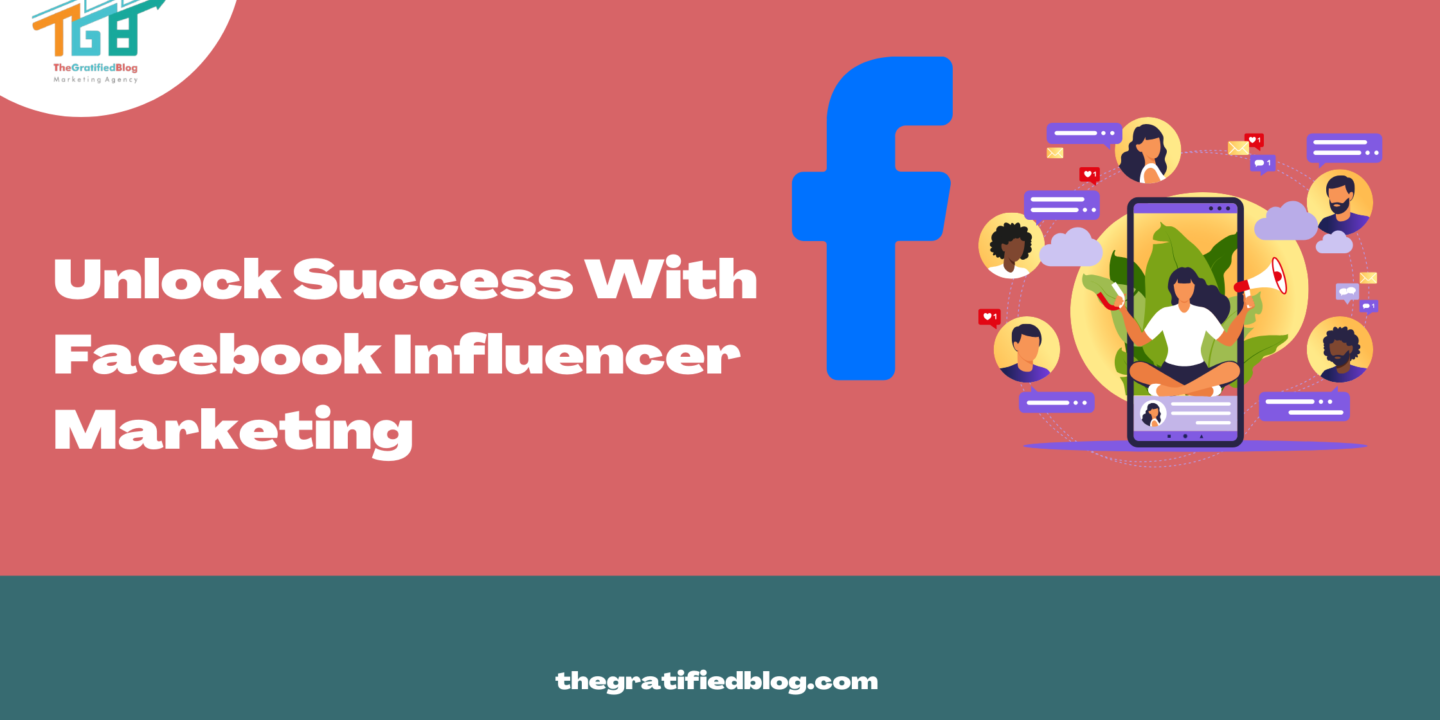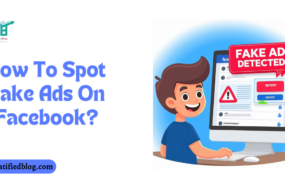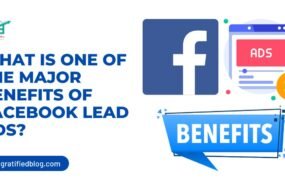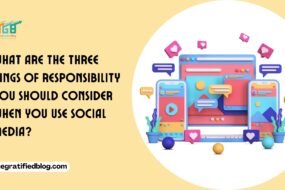
In the contemporary era of digital dominance, where social media holds unparalleled sway, Facebook Influencer marketing has surfaced as a crucial tactic for brands striving to connect with their target audience authentically and effectively. Leveraging the influential prowess of individuals with substantial followings on the platform, Facebook influencer marketing offers a distinct chance for brands to magnify their message, drive engagement, and foster meaningful relationships with consumers.
In this comprehensive guide, we delve deep into Facebook influencer marketing, exploring its significance, strategies for success, challenges, legal considerations, and future trends. So, fasten your seatbelts as we embark on a journey to unravel the dynamic world of Facebook influencer marketing and unlock its full potential.
Understanding Facebook Influencer Marketing
Overview Of Facebook As A Platform For Influencer Marketing
Facebook is a giant among social media sites, with billions of users worldwide. Many different types of people use it, and it has tools to help businesses advertise. That makes it an excellent place for working with people who influence others. Brands have the opportunity to collaborate with these influencers to make interesting content and connect with the people they want to reach
Types Of Influencers On Facebook
- Celebrities: These influencers are well-known personalities in various fields such as entertainment, sports, or politics. Their large following on Facebook can provide brands with massive exposure and credibility.
- Industry Experts: These influencers are authorities in specific niches or industries. They possess in-depth knowledge and expertise, making their recommendations highly influential within their communities.
- Micro-Influencers: Micro-influencers have a more minor but highly engaged following on Facebook. They are perceived as more authentic and relatable, driving niche engagement and conversions.
- Bloggers and Content Creators: Bloggers and content creators produce original content regularly, catering to specific interests or lifestyles. Their loyal followers value their recommendations, making them valuable partners for brands seeking to tap into niche audiences.
Characteristics Of Successful Facebook Influencers
- Authenticity: Successful Facebook influencers are genuine and transparent in their interactions with their audience, fostering trust and credibility.
- Engaging Content Creation: They have a knack for producing engaging content that strikes a chord with their audience, whether it’s through captivating visuals, entertaining videos, or thought-provoking captions.
- Consistency: Consistency is critical to maintaining audience engagement and loyalty. Successful influencers regularly post high-quality content and interact with their audience to keep them engaged.
- Audience Understanding: They have a deep understanding of their audience’s interests, preferences, and pain points, enabling them to customize their content and suggestions accordingly.
- Collaborative Spirit: Successful influencers are open to collaborating with brands that align with their values and interests, ensuring that sponsored content feels organic and authentic to their audience.
Now that you’ve grasped the concept of Facebook influencer marketing learned about the different types of influencers, and explored their key characteristics, let’s delve into the advantages of utilizing Facebook influencer marketing.
Benefits Of Facebook Influencer Marketing
- Increased Brand Awareness: Facebook influencer marketing boosts brand visibility by leveraging trustworthy individuals within their communities. Through collaborations, brands reach new audiences, expand their online presence, and amplify their message. Influencers sharing branded content increases brand discovery and awareness among potential customers.
- Higher Engagement Rates: Facebook influencer marketing drives superior engagement compared to traditional methods. Influencers maintain a dedicated following that consistently interacts with their content. Partnering with influencers fosters meaningful interactions with the target audience, increasing likes, comments, shares, and clicks, enhancing brand visibility and affinity.
- Improved Trust and Credibility: Influencers are seen as credible sources in their niches. Their endorsements carry weight among followers, building trust. Aligning with influencers whose values resonate with the audience enhances brand credibility. Authentic endorsements foster trust among followers, elevating brand trust and credibility.
- Targeted Audience Reach: Facebook’s precise targeting options enable brands to reach specific demographics. Partnering with relevant influencers ensures reaching the right audience. Influencers understand their audience’s demographics and preferences, allowing tailored content delivery. This targeted approach boosts marketing effectiveness, driving higher conversion rates and ROI.
Strategies For Effective Facebook Influencer Marketing
Effective Facebook influencer marketing requires careful planning and execution. Here are detailed strategies to maximize success:
Identifying The Right Influencers

- Define Your Target Audience: Define your target audience’s demographics, interests, and preferences.
- Conduct Thorough Research: Use tools like Facebook Insights, influencer marketing platforms, and social media listening tools to pinpoint influencers who connect with your desired audience.
- Assess Relevance and Alignment: Look for influencers whose content, values, and audience align with your brand. Consider factors such as engagement rate, authenticity, and previous brand collaborations.
- Evaluate Reach and Engagement: Analyze an influencer’s reach (number of followers) and engagement metrics (likes, comments, shares) to gauge their effectiveness in driving audience interactions.
- Establish Relationships: Build authentic relationships with potential influencers through interacting with their content, exchanging valuable insights, and demonstrating genuine interest in their work.
Setting Clear Objectives And Goals
- Define Specific Objectives: Clearly define the objectives of your influencer marketing campaign, whether it’s increasing brand awareness, driving website traffic, boosting sales, or enhancing brand perception.
- Set Measurable Goals: Establish SMART objectives corresponding to your overarching marketing objectives. For example, aim to achieve a certain number of impressions, clicks, conversions, or ROI.
- Align with Key Performance Indicators (KPIs): Identify relevant Key Performance Indicators (KPIs) for monitoring the effectiveness of your campaign, such as engagement rate, click-through rate (CTR), conversion rate, return on ad spend (ROAS), and cost per acquisition (CPA).
Crafting Authentic Content

- Understand Your Audience: Gain insights into understanding your target audience’s preferences, interests, and challenges to develop content that connects with them.
- Collaborate with Influencers: Involve influencers in the content creation to ensure authenticity and relevance. Motivate them to recount their encounters, narratives, and opinions about your brand or products.
- Maintain Brand Consistency: Provide influencers with clear brand guidelines, messaging, and visual assets to ensure consistency with your brand identity and values.
- Encourage Creativity: Allow influencers creative freedom to showcase your brand uniquely and engagingly. Authenticity and creativity are vital to capturing audience attention and driving meaningful engagement.
Leveraging Facebook Features (E.G., Facebook Live, Stories)
- Explore Various Content Formats: Experiment with different content formats Facebook offers, such as Facebook Live, Stories, native videos, and carousel ads.
- Utilise Interactive Features: Leverage interactive features like polls, quizzes, and Q&A sessions to encourage audience participation and engagement during influencer collaborations.
- Tap into Follower Insights: Use Facebook to understand audience behavior, preferences, and engagement patterns. Tailor your content strategy and influencer collaborations based on these insights to maximize impact.
- Amplify Reach through Paid Promotion: Boost influencer-generated content with targeted Facebook ads to extend its reach and visibility to a broader audience. Consider using custom or lookalike audiences to target users similar to the influencer’s followers.
Monitoring And Measuring Campaign Performance

- Implement Tracking Mechanisms: Use tracking links, UTM parameters, and conversion tracking pixels to monitor the performance of your influencer marketing campaigns.
- Monitor Real-Time Engagement: Keep a close eye on engagement statistics like likes, comments, shares, and mentions to gauge audience response and sentiment towards your campaign.
- Analyse Performance Metrics: Regularly analyze campaign performance data against predefined KPIs to assess the effectiveness of your influencer collaborations. Identify areas of improvement and optimization opportunities.
- Gather Feedback and Iterate: Solicit feedback from influencers, audience members, and internal stakeholders to gather insights and learnings from each campaign. Use this feedback to refine your influencer marketing strategy and enhance future collaborations.
Challenges And Solutions In Facebook Influencer Marketing

Dealing with Fake Followers and Engagement:
- Challenge: One of the significant challenges in Facebook influencer marketing is the presence of fake followers and engagement, which can skew metrics and misrepresent an influencer’s actual reach and impact.
- Solution: Implement thorough vetting processes to identify influencers with genuine and organic followings. Utilise tools and platforms that analyze engagement patterns and detect suspicious activity. Collaborate with influencers who prioritize authenticity and have a history of building genuine connections with their audience.
Ensuring Transparency and Disclosure:
- Challenge: Maintaining transparency and disclosure is essential in influencer marketing to comply with regulations and maintain trust with the audience. However, some influencers may need to disclose sponsored content adequately, leading to ethical concerns and potential backlash.
- Solution: Establish clear guidelines and contracts outlining the disclosure requirements for influencer partnerships. Educate influencers on the importance of transparent disclosure and the consequences of non-compliance. Monitor influencer content to ensure adherence to disclosure guidelines and promptly address non-compliance.
Managing Expectations and Budgets:
- Challenge: Balancing expectations and budgets can be challenging in influencer marketing, especially when stakeholders have unrealistic expectations or limited resources.
- Solution: Set realistic goals and expectations for influencer campaigns based on available budgets, objectives, and market conditions. Give precedence to quality rather than quantity and concentrate on constructing long-term relationships with influencers rather than one-off collaborations. Allocate resources strategically to maximize impact and ROI, considering influencer fees, content production costs, and paid promotion budgets.
Navigating Changes in Facebook’s Algorithms and Policies:
- Challenge: Facebook’s algorithms and policies are constantly evolving, impacting the reach and visibility of influencer content. Changes in algorithmic preferences or policy updates can affect the effectiveness of influencer campaigns and require adjustments in strategy.
- Solution: Stay informed about Facebook’s algorithm updates and policy changes through official announcements, industry news, and expert insights. Adapt influencer marketing strategies by leveraging features and formats the algorithm favors, such as video content or interactive posts. Diversify content distribution channels and explore alternative platforms to mitigate the risk of over-reliance on Facebook. Continuously monitor campaign performance and iterate based on evolving trends and best practices.
Conclusion
Now that you’ve gained comprehensive insights into Facebook influencer marketing, it’s evident that this strategy presents many advantages for brands seeking to improve their visibility on the internet and engage with their target audience effectively.
As you begin your venture into influencer marketing, keep in mind to prioritize authenticity, establish clear objectives, and consistently oversee and refine your campaigns for optimal impact. With the right strategies and partnerships, Facebook influencer marketing can be valuable for achieving your marketing goals and driving business success in the digital age.
If you still have any questions related to the topic, please leave them in the comments section below. Feel free to ask any questions you may have.
Thanks for reading 🙂








No Comments